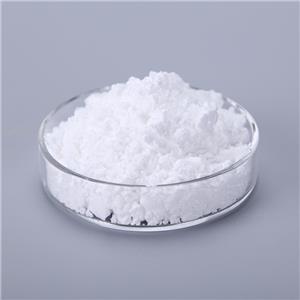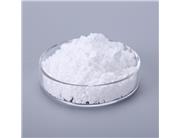Description:
Lisinopril dihydrate is a medication belonging to the class of angiotensin-converting enzyme (ACE) inhibitors. It is primarily used in the treatment of hypertension (high blood pressure), heart failure, and to improve survival after a heart attack.
Mechanism of Action
Lisinopril works by inhibiting the activity of the ACE enzyme, which plays a crucial role in the renin-angiotensin-aldosterone system (RAAS). By blocking ACE, lisinopril prevents the conversion of angiotensin I to angiotensin II, a potent vasoconstrictor. As a result, it leads to:
Vasodilation: Relaxation of blood vessels, which decreases blood pressure.
Reduced Aldosterone Secretion: This lowers sodium and water retention by the kidneys, further contributing to a decrease in blood pressure.
Indications
Lisinopril dihydrate is indicated for:
Hypertension: It is commonly prescribed to lower blood pressure, reducing the risk of cardiovascular events such as strokes and heart attacks.
Heart Failure: Used as part of a comprehensive treatment plan for patients with heart failure, lisinopril helps to decrease the workload on the heart and improve symptoms.
Post-Myocardial Infarction: After a heart attack, lisinopril is often given to improve survival rates and enhance heart function.
Diabetic Nephropathy: It may also be used to help protect kidney function in patients with diabetes who have proteinuria (excess protein in the urine).
Administration
Lisinopril dihydrate is typically administered orally in tablet form. It can be taken with or without food, and the usual starting dose for hypertension is often 10 mg to 20 mg once daily, with adjustments made based on blood pressure response and tolerability. Doses can range up to 40 mg per day depending on the individual’s condition and response to therapy.
Side Effects
Common side effects of lisinopril may include:
Cough: A persistent dry cough is a well-known side effect of ACE inhibitors.
Hyperkalemia: Increased potassium levels in the blood can occur, leading to potential heart issues.
Low Blood Pressure: Some patients may experience hypotension, especially after the first dose.
Dizziness or Lightheadedness: Particularly upon standing (orthostatic hypotension).
Fatigue: General tiredness can occur.
Serious side effects, although rare, may include:
Angioedema: Swelling of the face, lips, throat, or tongue, which can be life-threatening.
Kidney Dysfunction: Changes in kidney function may occur, so renal function should be monitored.
Contraindications and Precautions
Lisinopril should not be used in:
Hypersensitivity: In patients with known allergies to lisinopril or other ACE inhibitors.
History of Angioedema: Related to previous ACE inhibitor treatment.
Pregnancy: Lisinopril is contraindicated during pregnancy due to risks to the fetus, particularly in the second and third trimesters.
Precautions include:
Monitoring renal function and potassium levels.
Caution in patients with a history of renal disease or existing electrolyte imbalances.
Conclusion
Lisinopril dihydrate is a widely used ACE inhibitor that effectively manages hypertension and heart failure and improves outcomes post-myocardial infarction. Like all medications, it should be prescribed and monitored by healthcare professionals to ensure safety and effectiveness. Patients should be aware of potential side effects and contraindications and consult their physician for personalized medical advice and treatment plans.

 China
China



